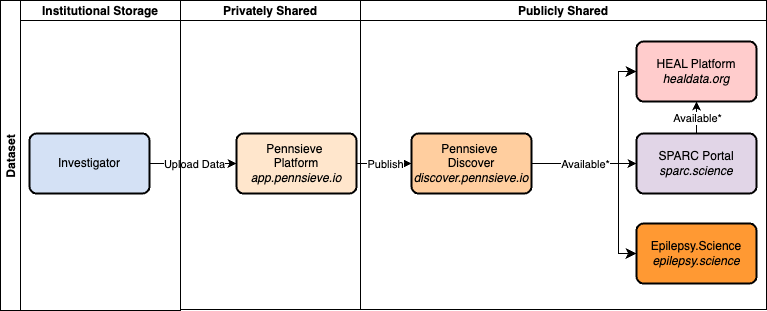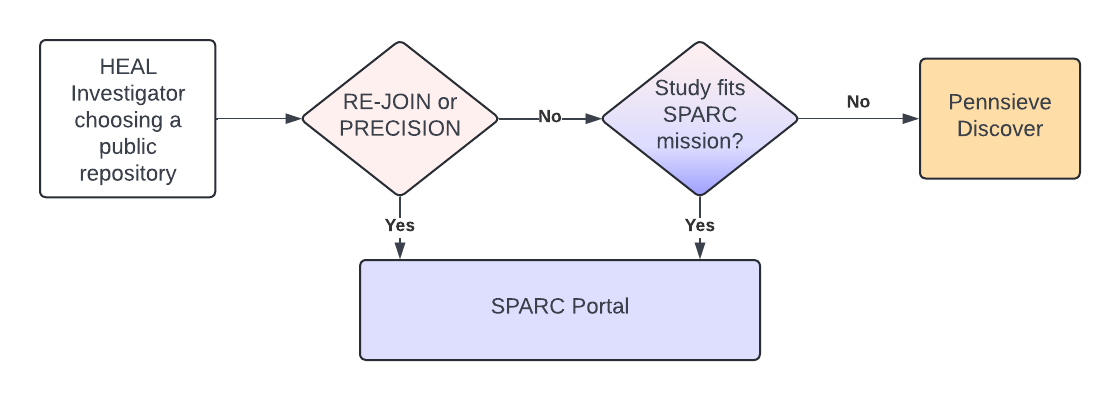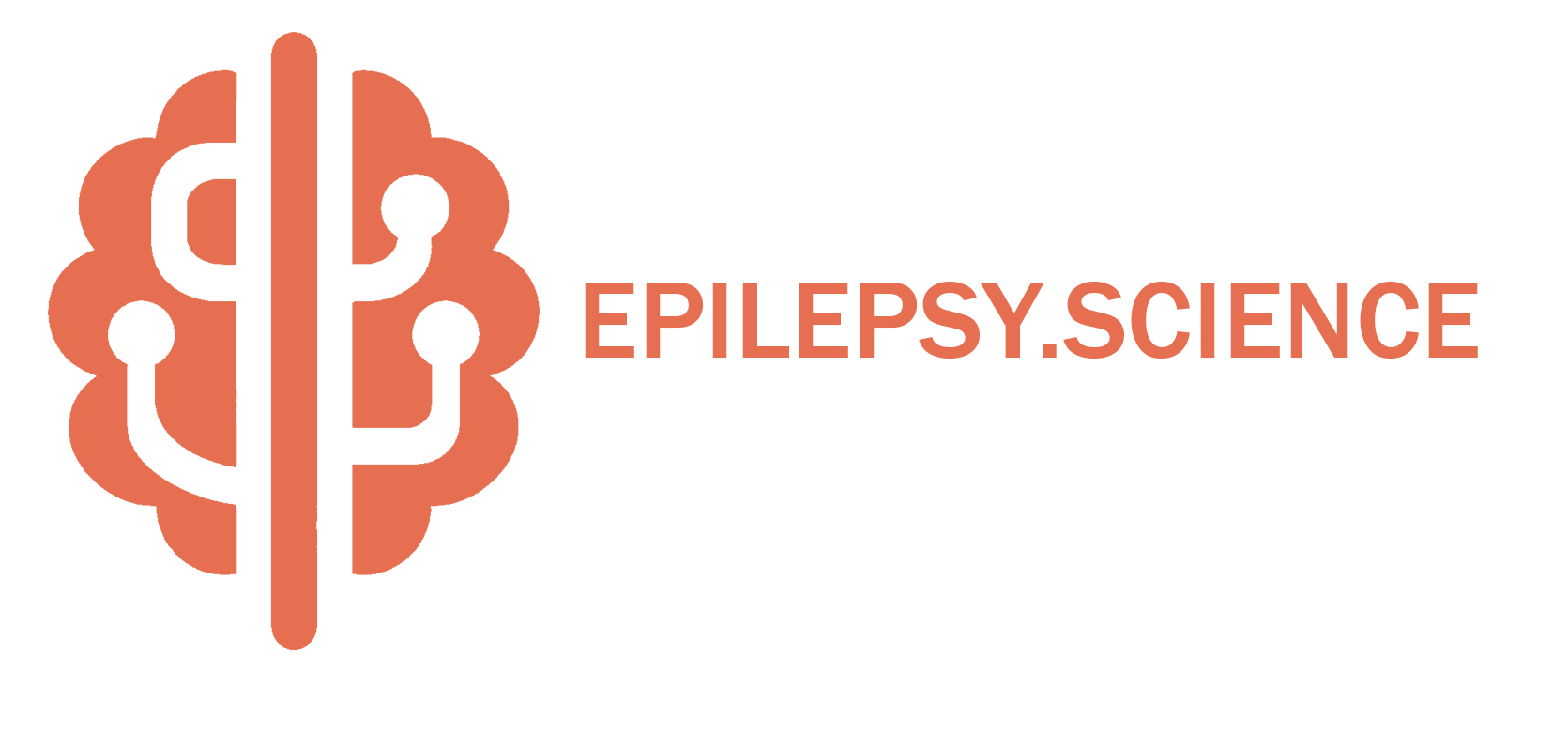Pennsieve Open Repositories
Which open repositories do Pennsieve support?
Overview
Pennsieve Open Repositories is a new feature and is currently tested with a small number of participating efforts. Not all functionality might be available to all users.
The Pennsieve Platform supports several open repositories. You can propose a dataset to one of the repositories by following the Dataset Proposal workflow. The publishing team of the corresponding repository will evaluate the fit of your dataset for the repository and accept or reject your proposal. If your proposal is accepted, you'll receive an invite to upload, curate and submit your dataset for publication on the targeted repository.

*Not all datasets published are available on each open repository.
For information on how to submit to one of the repositories described below, see: Submit a Dataset Proposal to a Repository
Repositories:
SPARC is open to accepting datasets on the Peripheral Nervous System (PNS) and its interactions with the Central Nervous System and end organs. Do you think you have an applicable dataset or model you’d like to contribute to the PNS community through the SPARC Portal? For a limited time, the NIH SPARC Common Fund will cover costs to accept datasets and models that fit the SPARC mission at no cost [1] to you, the investigator.
SPARC.Science also hosts public datasets for the NIH SPARC Program, the NIH HEAL RE-JOIN Program and the NIH HEAL PRECISION Human Pain Network. SPARC is a HEAL-compliant repository that also accepts datasets from other initiatives in HEAL and other NIH efforts with research domains within the scope of the SPARC repository.
Learn more about what SPARC has to offer, how to Submit to SPARC and submit a dataset submission request form to tell the SPARC Data and Resource Center (DRC), the people that build the SPARC Portal and its core resources, to see how
Have questions about this process or other ways that SPARC can support your research? Please contact us through this form or via email: [email protected]
[1]: Note: We are a non-profit and aim to provide our products free or for a minimal charge to the academic research community. We will never charge for access to our data and tools. However, in order to maintain and continue innovation of the SPARC Portal and associated products and services, we need those using SPARC to help defray some of our costs. Thank you for supporting our mission.
In order to maximize utility and reproducibility of biomedical research, it is important that scientists are able to make their research data publicly available. This is particularly relevant when research is sponsored by government funding agencies (i.e. National Institutes of Health) as these data are generally viewed as a public asset.
The Pennsieve platform allows users to publish their datasets for re-use by the scientific community. Each dataset will receive a globally recognized DOI which you can use in publications, and will automatically be indexed through Google Dataset, and other search engines.
The Pennsieve platform provides mechanisms to ensure that published datasets adhere to all FAIR Principles of Data Sharing through a number of quality checks and standardization mechanisms. This means that when datasets are published, the platform automatically includes information that allows other users to find these datasets and access the datasets in a standardized way.
NIH HEAL Initiative
The Helping to End Addiction Long-term® Initiative, or NIH HEAL Initiative®, is an NIH-wide effort to speed scientific solutions to stem the national opioid public health crisis. The initiative funds over 1,000 projects nationwide. Researchers are taking a variety of approaches to address the opioid epidemic through understanding, managing, and treating pain, as well as improving prevention and treatment for opioid misuse and addiction (NIH HEAL Initiative, May 2024).
As part of the NIH HEAL Initiative®, the HEAL Data Ecosystem was created to accelerate sharing HEAL-generated data and results with the broad community of researchers, health care providers, community leaders, policy makers, and other HEAL stakeholders. The HEAL Data Ecosystem achieves this by empowering researchers to make their HEAL-generated data FAIR (findable, accessible, interoperable, and reusable) through HEAL compliant repositories, which are then surfaced centrally by the HEAL Data Platform, enabling HEAL data to be searched, analyzed, and used to make new discoveries (HEAL Data Ecosystem, May 2024).
Pennsieve Discover and SPARC are both HEAL-compliant repositories and are available to accept data from other HEAL initiatives outside of the NIH HEAL RE-JOIN Program and the NIH HEAL PRECISION Human Pain Network.

Not sure which repository is right for your dataset? Contact at [[email protected]]
Epilespy.Science

Coming soon
Epilepsy.Science is an open repository targeting both Clinical and Pre-clinical Epilepsy datasets. Epilepsy.science will aim to develop the most comprehensive catalog of high quality multimodal Epilepsy Datasets. The Repository accepts datasets that are: 1) Multimodal, 2) Well annotated, and 3) Are expected to have a high impact in ML and AI driven applications for Epilepsy Research and clinical translation
Updated 2 months ago